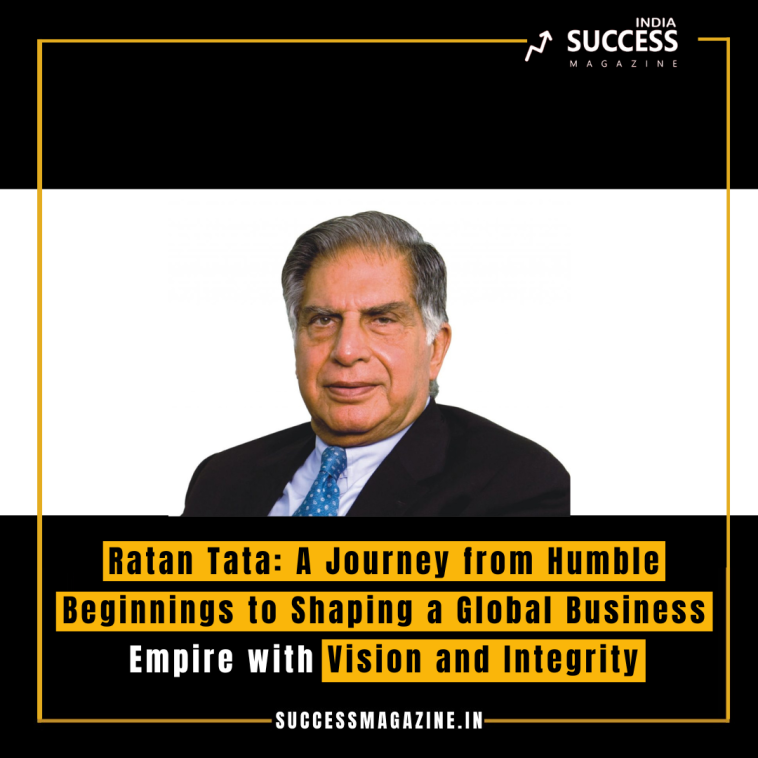Ratan Tata’s rise from modest beginnings to becoming a global business icon is a remarkable story of vision, perseverance, and ethical leadership. Born on December 28, 1937, Ratan Tata was the great-grandson of the founder of the Tata Group, Jamsetji Tata. Despite his prestigious lineage, Tata’s journey was far from easy. He faced numerous challenges and obstacles, but his unwavering commitment to excellence and his visionary approach ultimately propelled him to the forefront of the global business world.
Tata’s career began in the 1960s, where he initially worked in various Tata Group companies, learning the ropes and understanding the intricacies of the business. His early years were marked by a deep dedication to the company’s values and an eagerness to innovate. Tata’s leadership style was deeply influenced by his commitment to ethical practices and his belief in social responsibility, traits that have become synonymous with his tenure.
In 1991, Ratan Tata was appointed Chairman of the Tata Group, a significant milestone that marked the beginning of a transformative era for the conglomerate. Under his leadership, Tata Group embarked on an ambitious journey to expand its global footprint. Tata’s strategic vision led to a series of landmark acquisitions that not only diversified the group’s portfolio but also significantly enhanced its international presence. Notable among these acquisitions were the purchase of Tetley Tea, Jaguar Land Rover, and Corus Steel, which positioned Tata Group as a formidable global player in various industries.
Tata’s leadership was characterized by a focus on innovation and sustainable growth. He championed several initiatives that emphasized the importance of research and development, encouraging a culture of continuous improvement and adaptability. The launch of the Tata Nano, a groundbreaking project aimed at creating an affordable car for the masses, exemplified Tata’s commitment to providing value while addressing societal needs. Although the Nano faced challenges, it highlighted Tata’s willingness to take bold risks and push the boundaries of conventional thinking.
Beyond business, Ratan Tata’s legacy is marked by his dedication to social causes. He spearheaded numerous philanthropic initiatives through the Tata Trusts, focusing on areas such as education, healthcare, and rural development. His efforts have had a profound impact on communities across India, reflecting his belief that business success should be coupled with a strong sense of social responsibility. Tata’s emphasis on ethical leadership and corporate governance has set a high standard for business practices, earning him respect and admiration from peers and industry leaders alike.
Throughout his tenure, Tata remained a steadfast advocate for ethical conduct and corporate integrity. His approach to leadership was not just about achieving financial success but also about fostering a culture of respect, fairness, and social consciousness. His ability to balance commercial interests with a commitment to societal welfare has earned him a reputation as a leader who truly understands the broader impact of business.
Ratan Tata’s journey from his early days to becoming a global business icon is a testament to his visionary leadership and unwavering principles. His legacy is not only defined by the success of the Tata Group but also by his contributions to society and his commitment to ethical business practices. As a leader who has shaped the global business landscape with integrity and innovation, Ratan Tata continues to inspire future generations of entrepreneurs and leaders around the world.


